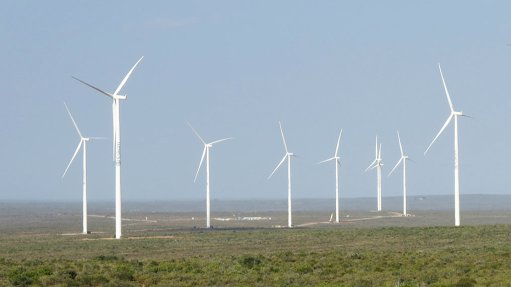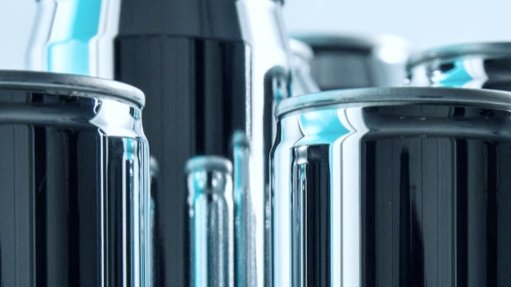Customs inspections
The Cambridge Dictionary defines an inspection as “the act of looking at something carefully, or an official visit to a building or organisation to check that everything is correct and legal”. As the plural in the headline suggests, the South African Revenue Service (Sars) undertakes various types of customs inspections.
Sars states: “A customs inspector may, for the purposes of the Customs and Excise Act, 1964, stop, detain and examine any goods while under customs control in order to determine compliance with the Act or any other law in respect of such goods. “The customs inspector may question with respect to any matter dealt with in the Act, anyone found, or on reasonable grounds believed to be employed, on any premises entered for search purposes, and on reasonable grounds believed to be or to have been in possession, custody or control of anything in respect of which any provision of the Act is applicable.”
There are two types of customs inspections: documentary and physical. A documentary inspection may lead to a physical inspection. A physical inspection encompasses investigating, searching or examining goods, clearance documentation and means, areas and modes of transport. These inspections are conducted to pursue a specific objective in validating compliance with the Act. These inspections may be nonintrusive or intrusive and may include the deployment of Sars’ Detector Dog Unit. A customs inspector may, on reasonable grounds, search premises and any person found on the entered premises. The inspector may search any person who, on reasonable grounds, is believed to have been in possession, custody or control of anything in respect of which any provision of the Act is applicable.
A nonintrusive inspection can also include scanning, with the decision for further customs intervention based on the outcome of the scan image. Where no anomalies are found, the container is released; where anomalies are identified, the container may be directed for physical inspection.
With respect to physical inspection, it should be noted that any premises may be searched where a warrant has been issued by a magistrate or a judge. However, there are premises that may be inspected without a warrant, namely premises of government or Sars clients with minimal expectation of privacy, owing to being situated in a regulated environment where it can be assumed that inspections aimed at compliance with the Act must be tolerated. These include premises managed or operated by the State or a public entity as part of a port, airport, railway station or land port and on which an activity to which the Act applies is carried out or allowed; premises licensed or registered in terms of the Act; and premises occupied by a person licensed or registered and used for purposes of the business for which that person is licensed or registered – examples are premises leased as a warehouse by a licensed or registered client and used for the specific business purposes, and the part of a house used as an office of a licensed or registered client.
It might become necessary to release goods which have been detained or stopped for inspection. Termed as “release under embargo”, this is usually allowed where consignments are too bulky to handle; where consignments are considered fragile or dangerous and special handling by experts in the field is required; where consignments comprise household effects, books, periodicals and other printed matter; and where consignments comprise goods requiring immediate refrigeration.
“Examinations without prejudice” are conducted where goods are released and have left the control of customs, and where the client requests such examination; for example, where goods are packed or repacked at an exporter’s premises or any other premises, where goods are destructed under customs supervision, and/or for purposes of substantiating refund claims on duties paid.
As Tacitus reminds us, “Truth is confirmed by inspection and delay; falsehood by haste and uncertainty.”
Article Enquiry
Email Article
Save Article
Feedback
To advertise email advertising@creamermedia.co.za or click here
Press Office
Announcements
What's On
Subscribe to improve your user experience...
Option 1 (equivalent of R125 a month):
Receive a weekly copy of Creamer Media's Engineering News & Mining Weekly magazine
(print copy for those in South Africa and e-magazine for those outside of South Africa)
Receive daily email newsletters
Access to full search results
Access archive of magazine back copies
Access to Projects in Progress
Access to ONE Research Report of your choice in PDF format
Option 2 (equivalent of R375 a month):
All benefits from Option 1
PLUS
Access to Creamer Media's Research Channel Africa for ALL Research Reports, in PDF format, on various industrial and mining sectors
including Electricity; Water; Energy Transition; Hydrogen; Roads, Rail and Ports; Coal; Gold; Platinum; Battery Metals; etc.
Already a subscriber?
Forgotten your password?
Receive weekly copy of Creamer Media's Engineering News & Mining Weekly magazine (print copy for those in South Africa and e-magazine for those outside of South Africa)
➕
Recieve daily email newsletters
➕
Access to full search results
➕
Access archive of magazine back copies
➕
Access to Projects in Progress
➕
Access to ONE Research Report of your choice in PDF format
RESEARCH CHANNEL AFRICA
R4500 (equivalent of R375 a month)
SUBSCRIBEAll benefits from Option 1
➕
Access to Creamer Media's Research Channel Africa for ALL Research Reports on various industrial and mining sectors, in PDF format, including on:
Electricity
➕
Water
➕
Energy Transition
➕
Hydrogen
➕
Roads, Rail and Ports
➕
Coal
➕
Gold
➕
Platinum
➕
Battery Metals
➕
etc.
Receive all benefits from Option 1 or Option 2 delivered to numerous people at your company
➕
Multiple User names and Passwords for simultaneous log-ins
➕
Intranet integration access to all in your organisation

















